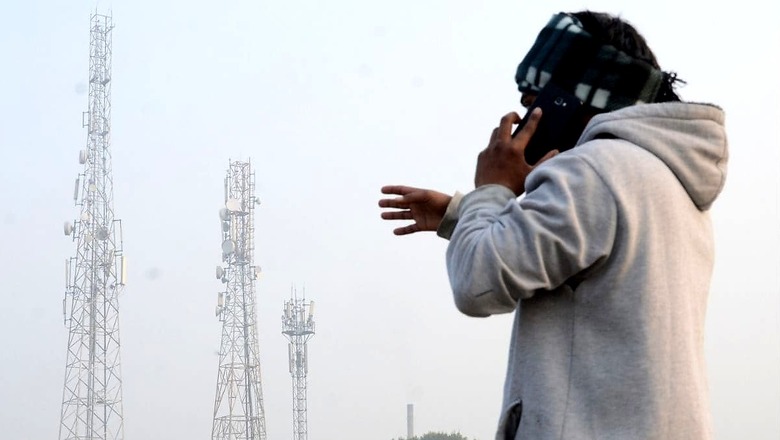
views
The long-anticipated Telecommunications Bill 2023 was presented in the Lok Sabha on Monday by union minister for communications Ashwini Vaishnaw. However, Bahujan Samaj Party’s Ritesh Pandey opposed the bill’s presentation under Article 177 of the Constitution.
He contested its classification as a money bill, which potentially circumvents scrutiny by the Rajya Sabha. Pandey adamantly advocated for its reclassification as a regular bill, emphasising the need for comprehensive scrutiny.
However, there are a few facts that need to be looked into. Clause 21 of the bill bestows the central government with the authority to take over, manage, or suspend any telecommunication services or networks in the interest of national security or during times of war.
It says: “The Central Government may, if satisfied that it is necessary or expedient so to do, in the interest of national security, friendly relations with foreign States, or in the event of war, by notification take such measures as are necessary in the circumstances of the case, including issuing directions in respect of the following, namely… (f) taking over the control and management of, or suspending the operation of, or entrusting any authority of the Central Government to manage any or all of any telecommunication services, or any telecommunication network or part thereof, connected with such telecommunication services.”
Additionally, the bill outlines measures for cybersecurity, including the collection, analysis, and dissemination of traffic data generated within telecommunication networks. As per clause 22: “(1) The Central Government may by rules provide for the measures to protect and ensure cyber security of telecommunication networks and telecommunication services. (2) The measures may include collection, analysis and dissemination of traffic data that is generated, transmitted, received or stored in telecommunication networks. Explanation.—For the purposes of this sub-section, the expression “traffic data” means any data generated, transmitted, received or stored in telecommunication networks including data relating to the type, routing, duration or time of a telecommunication.”
It goes on to say, “(3) The Central Government may, by notification in the Official Gazette, declare any telecommunication network, or part thereof, as Critical Telecommunication Infrastructure, disruption of which shall have debilitating impact on national security, economy, public health or safety. (4) The Central Government may by rules provide for the standards, security practices, upgradation requirements and procedures to be implemented for such Critical Telecommunication Infrastructure.”
Furthermore, a significant transformation comes in the form of rebranding the Universal Service Obligation Fund as the “Digital Bharat Nidhi”, placing it under the centralised control of the government. This fund will cater to various objectives, including promoting rural access to telecommunication services and supporting technological advancements and pilot projects.
While the bill doesn’t mention over-the-top (OTT) platforms in its definition of telecom services, it introduces a revised spectrum allocation process for satellite broadband services, bypassing auctions. This move aims to expedite service launches and is anticipated to benefit key companies such as Bharti’s OneWeb, Reliance’s Jio Satellite Communications, Elon Musk’s Starlink and Amazon’s Project Kuiper for administrative allocation of spectrum under the GMPCS licence.
Additionally, the contentious nature of the bill extends to the appointment process for the Telecom Regulatory Authority of India (TRAI) chairman and members, enabling appointments from the private sector based on extensive professional experience.
It says that a chairperson should possess a minimum of 30 years of professional experience, having served in executive roles or on the board of directors in specified areas. Additionally, a member should hold a minimum of 25 years of professional experience, similarly with service in executive capacities or on a board of directors as specified.
Arvind Bali, CEO, Telecom Sector Skill Council, told News18 that they applauded the introduction of the bill in the Lok Sabha on Monday, which is a significant step forward for India’s digital aspirations.
“We anticipate that well-defined regulations will enhance the telecom ecosystem, encouraging investment and fostering innovation to promote a healthy and competitive sector. This development is expected to act as a catalyst for driving the next phase of innovation and growth, contributing to the establishment of a robust digital infrastructure in the country. We are already prepared to meet the workforce demands of the expanding telecom sector that is poised to drive this transformative wave,” he noted.
Lt Gen AK Bhatt (retd), director general, Indian Space Association (ISpA), said that they appreciated the government’s progressive and forward-looking decision to table the Telecom Bill, taking the route of allocation of satellite spectrum administratively.
“This decision to allocate the satellite spectrum through a globally harmonised administrative method will pose a greater good for the nation and will spur growth in the nascent space sector, foster healthy competition, and ensure a level playing field for all stakeholders involved. The satellite-based communication networks have a huge potential that can transform India into a truly digital and developed economy. By allocating the spectrum by administrative method for satcom, India could align itself with international standards, promote global cooperation, help drive innovation, create opportunities for startups, and strengthen the country’s position in the global satellite market. This would also spur growth in all downstream sectors of space providing impetus to the space economy in India,” he noted.


















Comments
0 comment